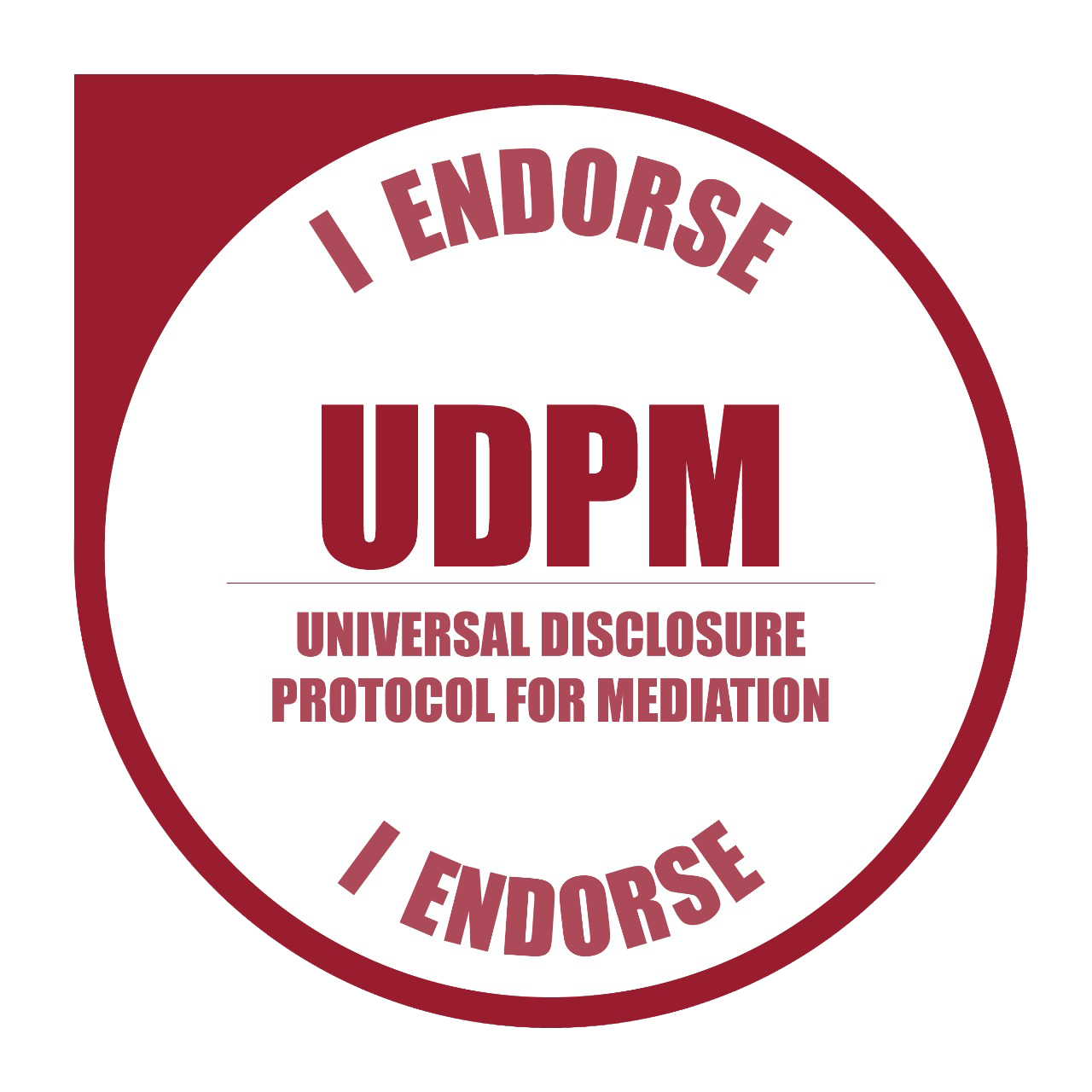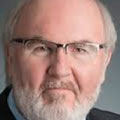Universal Disclosure Protocol for Mediation (UDPM)
Mediators from all corners of the globe are steadfastly committed to incorporating its six fundamental elements at the onset of their mediations. Developed collaboratively by esteemed mediation professionals worldwide, UDPM is a comprehensive framework that promotes and champions best practices in mediation. It encompasses 6 discussion points that mediators shall address at the outset of the process.
By explaining Conflict of Interest, Confidentiality, General Process, Role of Mediator/Parties, Technology, and Impact of Venue, mediators can help reduce potential confusion or conflict over the mediation process. This approach also supports self-determination, acknowledging cultural influences, promoting transparency, and respecting the flexibility of the mediation process.
| What is the UDPM Pledge? | It is a commitment that mediators around the world are making to start their mediation using the 6 elements of UDPM, by explaining Conflict of interest, Confidentiality, General Process, Role of Mediator/parties, Technology and Impact of Venue, to the parties. |
| WHAT DOES THE PLEDGE ENTAIL? | The text of the pledge encourages signatories to incorporate the explanation of the 6 elements in their mediations, such as: “As a mediator committed to honouring mediation self-determination, transparency, respect of cultural influences and flexibility, I will ensure that, wherever possible, I will discuss the list of elements for disclosure and any relevant optional topics with parties as part of intake and mediation. . I will clarify my independence and impartiality and reveal any relevant relationships (Conflict of Interest), . I will maintain confidentiality related to communication of any type during and after the mediation session (Confidentiality), . I will present the general flow of the mediation with the parties and highlight basic elements that the parties should expect as part of the process (General Process), . I will clearly describe and discuss the role that I will play in the mediation process using concrete examples of behaviours and actions that I may take (Role of Mediator and Parties) . I will explain and obtain permission to use any information and communication technology during the mediation (Technology), . I will disclose any actions or requirements based on the physical locations of myself or the parties ( Impact of Venue).” |
| WHAT WILL BE THE BENEFITS FOR THE PARTIES? | By addressing conflict of interests upfront, parties can have confidence in the mediator's ability to facilitate the process without bias. Explaining confidentiality will allow parties to speak freely and openly without fear that what they say will be used against them in court. Mediators also explain the limits of confidentiality and any exceptions that may apply. By explaining and getting agreement with the general process, mediators are setting expectations for the mediation and promoting transparency. The role of the mediator and parties is an essential element of mediation that defines the respective roles and responsibilities of the mediator and parties for that mediation honouring the self-determination of the parties. Technology is an increasingly important aspect of mediation and transparency about how it will be used during the mediation contributes for the increasing trust of the parties in the mediator and in the mediation process. Finally, the impact of the venue clarifies the potential impact that the venue may have on the process including issues related to accessibility, cultural sensitivities, privacy and law. This can help parties feel more comfortable being honest and forthcoming, leading to better communication and a more productive process. Also by promoting this transparency and respecting cultural influences, the mediator is helping the parties feel more in control of the process and ensure that the outcome is tailored to their specific needs and interests. |
| HOW MANY SIGNATRIES ARE THERE? | Today the UDPM has around 100 signatories, and every day more mediators are recognizing the value of this pledge. |
| ONLY MEDIATORS CAN SIGN THIS PLEDGE? | No. This pledge can also be signed by individual counsels, by mediation organizations and by any other organization that by adopting this protocol declare that they would give preference to a mediator that signed this protocol rather than one that did not endorse this protocol. |
| WHERE CAN MEDIATORS SIGN THE PLEDGE? | Mediators sign on https://universaldisclosureprotocolmediation.com/endorse-the-udpm/ - the website of the results of the workgroups work on the Universal Disclosure Protocol for Mediation. |








